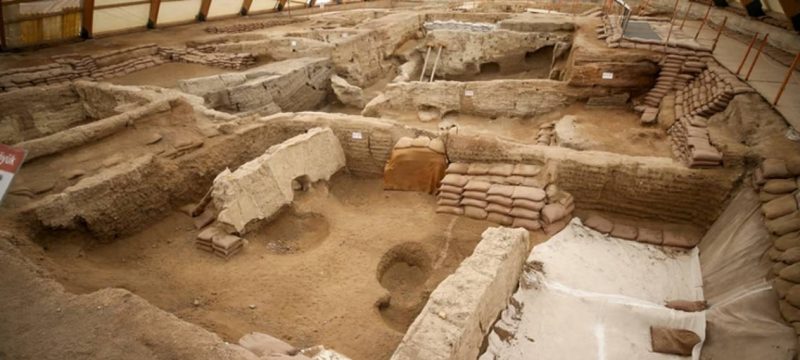KONYA / ESKIŞEHIR / ŞANLIURFA:
Anatolia, long regarded as one of the earliest cradles of settled civilization, continues to unveil its rich heritage of food culture through extraordinary archaeological discoveries—this time tracing the evolution of bread-making across millennia.
Oldest Leavened Bread Unearthed at Çatalhöyük
At Konya’s UNESCO-listed site of Çatalhöyük, archaeologists have uncovered a piece of leavened bread dating back 8,600 years, found near the remains of a damaged oven from around 6600 BCE—making it one of the oldest examples of bread ever discovered.
5,000-Year-Old Ritual Bread Found in Eskişehir

Meanwhile, at Eskişehir’s Küllüoba Mound, researchers unearthed what they believe to be the world’s oldest baked and leavened bread, estimated to be 5,000 years old.
Scientific analysis revealed traces of emmer wheat and lentils, suggesting the bread was baked at approximately 140°C. Evidence indicates it may have been used in a fertility ritual before being carefully buried.
Christian-Era and Medieval Discoveries
Further south, excavations at the Topraktepe (Eirenepolis) Ancient City in Karaman revealed five carbonised loaves from the 7th–8th centuries CE, believed to be sacramental breads used in early Christian rituals.
Additionally, at the Harran ruins in Şanlıurfa, archaeologists discovered a bread mould with a diamond or “baklava” pattern dating back 800 years, providing new insights into medieval bread-making techniques.
A Living Tradition

These discoveries highlight Anatolia’s deep-rooted bread culture, one that still thrives in modern Türkiye. From golden corn bread in the Black Sea region to tandoor bread in the East and “bazlama” in Central Anatolia, Turkish bread-making reflects both regional diversity and ancient continuity.
Among the most beloved are pide, the iconic wood-fired flatbread, and the UNESCO-listed lavash and yufka, whose communal preparation traditions continue to embody Anatolia’s enduring spirit of togetherness and shared heritage.
In other news also read about From Dam To Dividend? Tarbela’s Gold Discovery Could Rewrite Pakistan’s Economy









